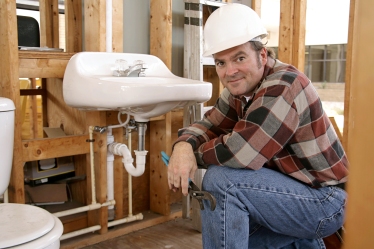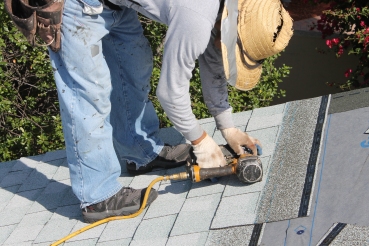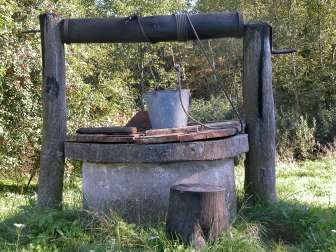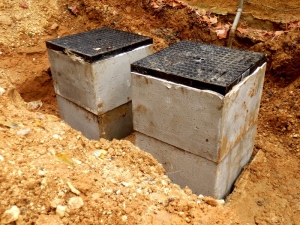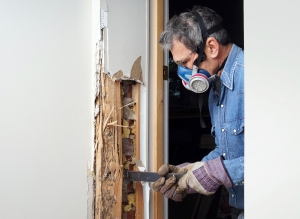 An environmental mold test can be an important part of any home inspection process. If, during the normal course of the due diligence process – when your wood destroying pest inspection and your home inspection are being performed – it is determined that you have a “mold like growth” happening somewhere, it is advisable for you to investigate the matter further. Mold like growth on surfaces is often pointed out and can be seen in the form of discoloration, frequently white, gray, brown, or black, but also green and other colors.
An environmental mold test can be an important part of any home inspection process. If, during the normal course of the due diligence process – when your wood destroying pest inspection and your home inspection are being performed – it is determined that you have a “mold like growth” happening somewhere, it is advisable for you to investigate the matter further. Mold like growth on surfaces is often pointed out and can be seen in the form of discoloration, frequently white, gray, brown, or black, but also green and other colors.
Molds are micro-organisms, or fungi, that help to decompose dead organic material, such as leaves, wood, plants and proteins. Molds grow best in warm, damp, humid conditions and they spread and reproduce by making and then releasing more mold spores into the air. When these microscopic spores, which can survive conditions too hot or sunny for mold to grow, land on a surface that has food and oxygen available, like wood or drywall, they can remain dormant until some sort of water damage occurs, which then allows them to grow and reproduce, releasing thousands or more spores into the air and repeating the cycle all over again.
The biggest causes of mold in most properties are:
- Flooding and water damage
- Wet clothes, fabrics and insulation
- Poor ventilation in crawl spaces, subfloors, basements and attics
- Condensation from pipes, HVAC systems and concrete floors
- Leaky pipes and faulty plumbing fixtures under the sink
- Leaky roofs, eaves, gutters and flashings
- Humidity and warm, moist conditions
If you do suspect that you have a mold problem remember this: in California there are no licensing requirements for people who remove mold, so you need to be informed on how to approach the issue. First, not all mold remediators are licensed contractors and not all licensed contractors are mold remediators. My best advice is to check with service provider that they are a licensed and certified by either the American Council for Accredited Certification (ACAC) or Institute of Inspection, Cleaning and Restoration Certification (IICRC). The California Department of Health Services and the California Department of Public Health are also good resource for more information on mold like growths and how to deal with them.
The cost of a mold test can vary greatly depending upon the size of the area being tested and the thoroughness of testing. Sometimes cabinets need to be pulled out and walls need to be opened and exposed to determine the true extent of damage. The cost of mold remediation can also vary greatly depending upon the scope of the work that needs to be done and certifications required to meet lender or homeowner requirements.
The bottom line is this: you need to do what is right for you and your family. The home inspection process is an important time to be focused and informed to make the best decisions for your family’s future. If you suspect mold or mold problems then have it checked. It’s best to find out early if there are any problems and what it cost to fix the problem and make it right.
As a home seller, if you are aware of any issues from the past that may have resulted in the formation of mold like growth, it is best to disclose it from the outset. When it comes to disclosure issues, especially health and safety, full disclosure is a must and always the best way to keep a buyer from claiming future damages.
Here is a list of some of the Central Coast Mold Remediation Services that I call on.
 Appraisers have a challenging job; their primary responsibility is to determine, the best they can, what an appropriate value for a property is, at a given time, considering all the external circumstances that are, or were in play at that moment in time. In communities like Atascadero, Templeton and Paso Robles that can be a tough order to fill. However, there are standard methods and practices that all professional, licensed appraisers should abide by in order to accomplish the goal. The onslaught of rules, requirements and regulations have made it a tough gig in recent years, and the original scope of work is just as challenging as ever.
Appraisers have a challenging job; their primary responsibility is to determine, the best they can, what an appropriate value for a property is, at a given time, considering all the external circumstances that are, or were in play at that moment in time. In communities like Atascadero, Templeton and Paso Robles that can be a tough order to fill. However, there are standard methods and practices that all professional, licensed appraisers should abide by in order to accomplish the goal. The onslaught of rules, requirements and regulations have made it a tough gig in recent years, and the original scope of work is just as challenging as ever.
